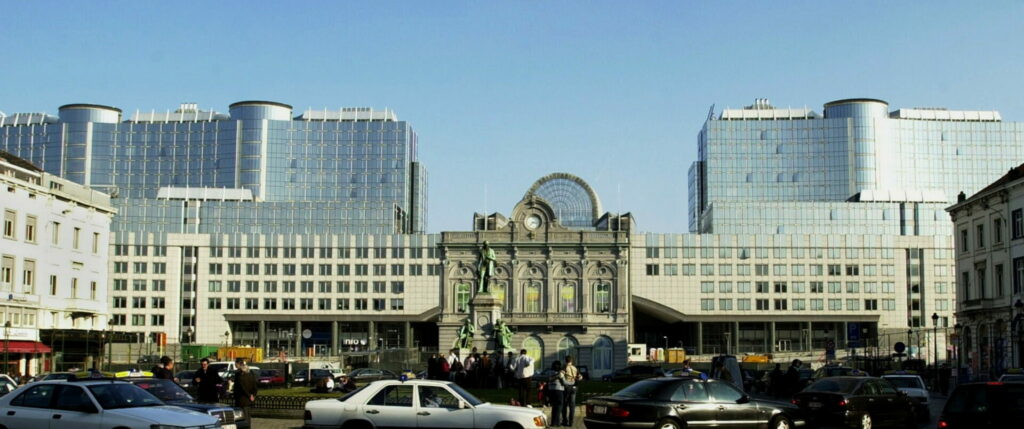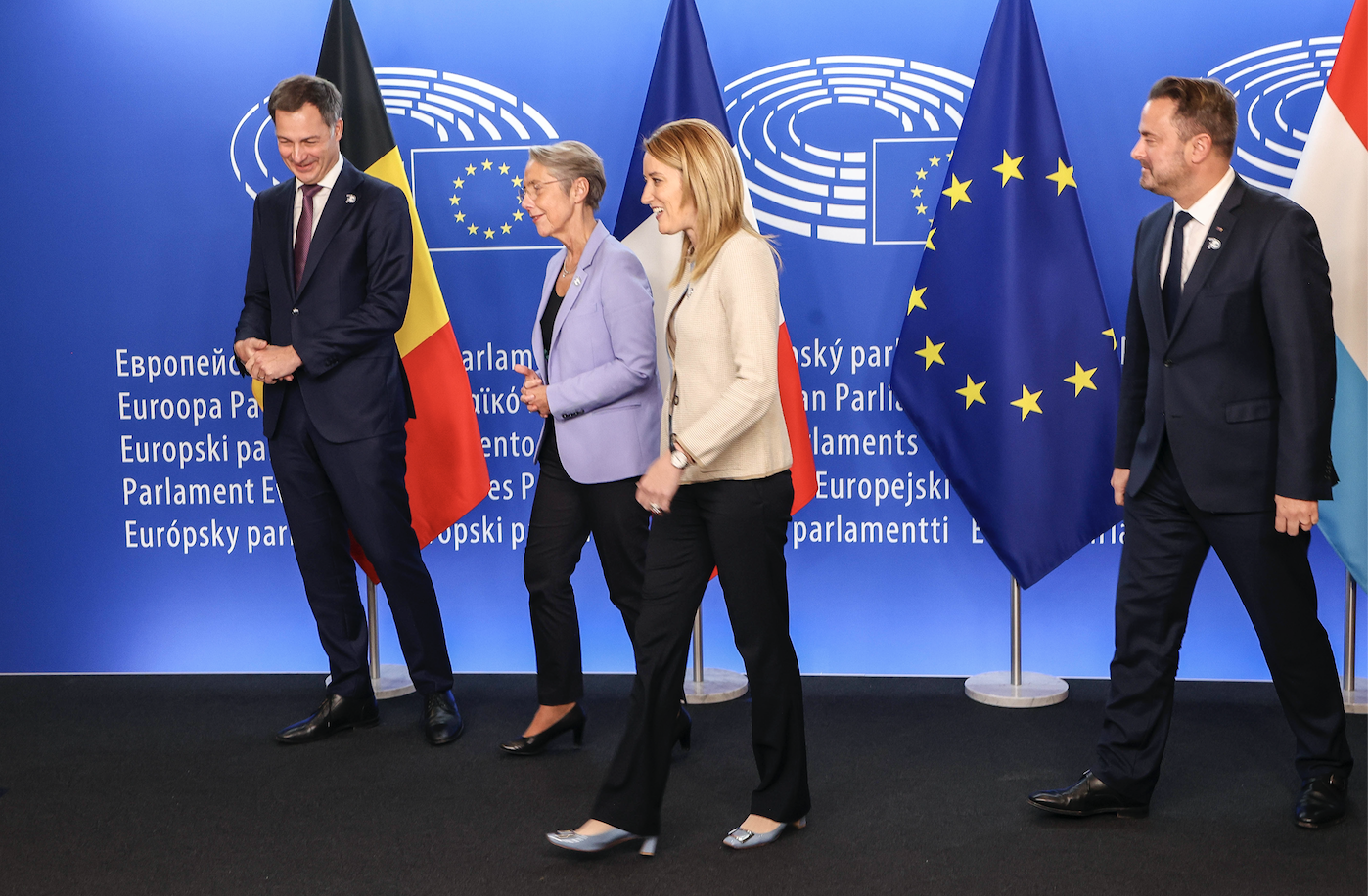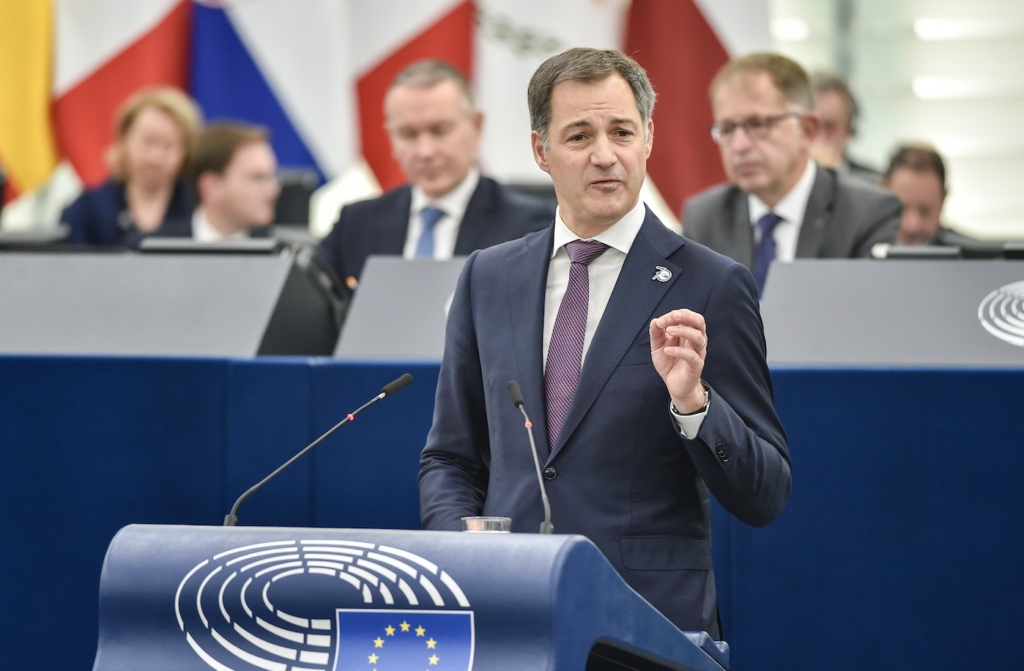Members of the European Parliament (MEPs) on Tuesday marked the 70th anniversary of the assembly's existence with a ceremony in Strasbourg, during which Belgian Prime Minister Alexander De Croo made the case for strengthening this European institution.
He described how what was once seen as a "multilingual talking shop" has since transformed into the world's only transnational parliament composed of directly-elected representatives of the people. In his speech, De Croo called it the "Parliament of parliaments," but acknowledged that sustained efforts are needed to guarantee its relevance.
"Our European democracy is far from perfect. It needs continuous improvement and the work is far from over." He added that if the EU really wants to strengthen its democracy this must be done at the international level. De Croo cited a number of challenges that confront the bloc and echoed previous statements, in which he had insisted that "it is only at the European level that we can stop the bleeding."

The Luxembourg railway station in front of the European Parliament in Brussels, 2003. BELGA PHOTO HERWIG VERGULT
However, De Croo added that the EU's democracy is "also more resilient than we sometimes think," praising "the pioneering role" the European Parliament has played to protect democracy and the rule of law in the European Union. "We cannot leave this fight for fundamental rights to the courts alone. We politicians also have to do the heavy lifting," he argued.
De Croo also pointed to the ambition of countries like Ukraine, Moldova and others on the eastern borders to join the European Union. This reality "forces us to adjust our political cogs, to take new steps in European democracy. To act more decisively in the coming years and decades. To be better armed to defend European interests in the world."
The EP's history
On 10 September 1952, the first session of the Common Assembly of the European Coal and Steel Community (ECSC), the beginning of the European Parliament, took place in Strasbourg. The first meeting was opened by Belgian politician Paul-Henri Spaak.
When it first convened, it comprised 78 appointed parliamentarians from the national parliaments of each Member State who had only limited and ineffective supervisory powers.

De Croo alongside French Prime Minister Elisabeth Borne, Luxembourg Prime Minister Xavier Bette and EP president Roberta Metsola. Credit: EP
Six years later, following the creation of the European Economic Community and the European Atomic Energy Community, the Common Assembly was enlarged and renamed the ''European Parliamentary Assembly," and by 1962, it adopted the name "European Parliament."
Since 1979, the people's representatives have been directly elected and the institution now aims to express the will of European citizens and "underpins the EU’s democratic legitimacy." Today, it has 705 directly elected representatives of the people who negotiate with the Member States on most new legislation made by the European Union.
Related News
- 40% female: MEPs adopt landmark quota for boards of large companies
- Belgium in Brief: Is Democracy failing?
Apart from De Croo, the EP invited the heads of government of the other two countries where the institution is based – French Prime Minister Elisabeth Borne and Luxembourg Prime Minister Xavier Bette – to attend the ceremony.
Brussels hosts most committee and political group meetings and a number of two-day plenary sessions, while Strasbourg hosts a four-day plenary session 12 times a year and Luxembourg houses administrative services.

